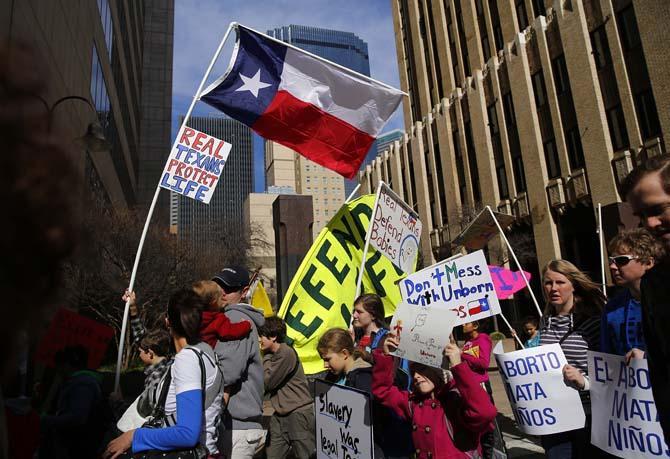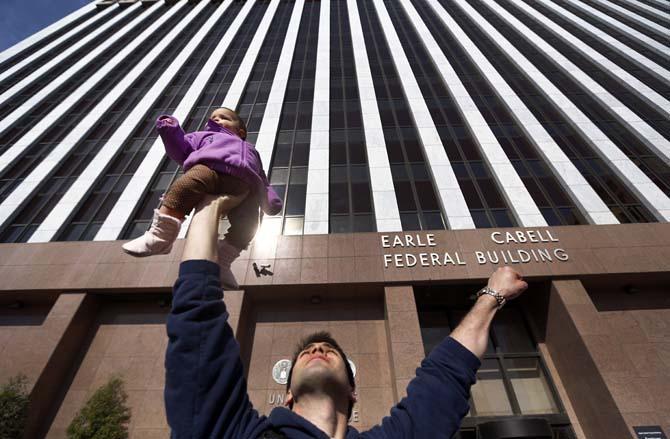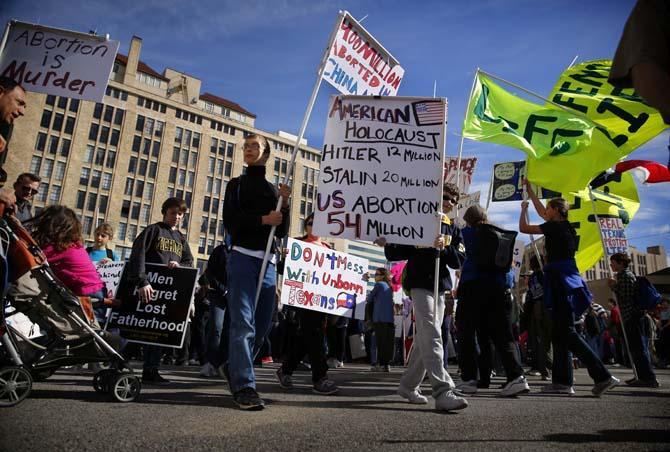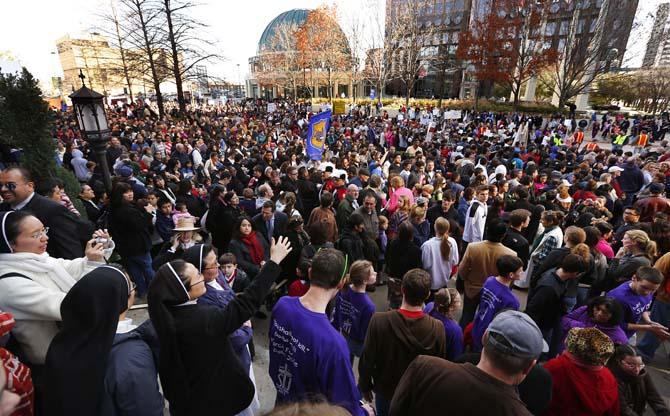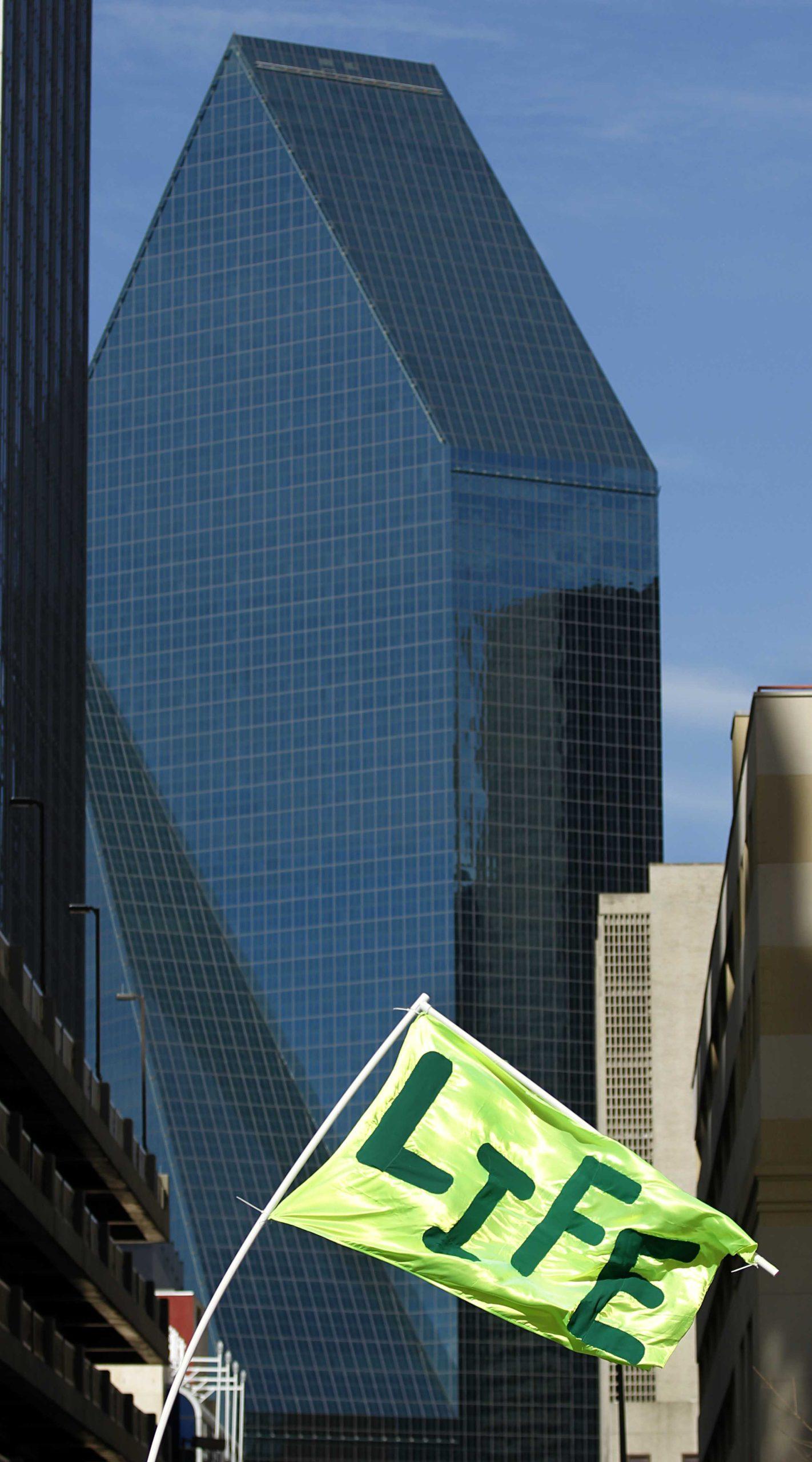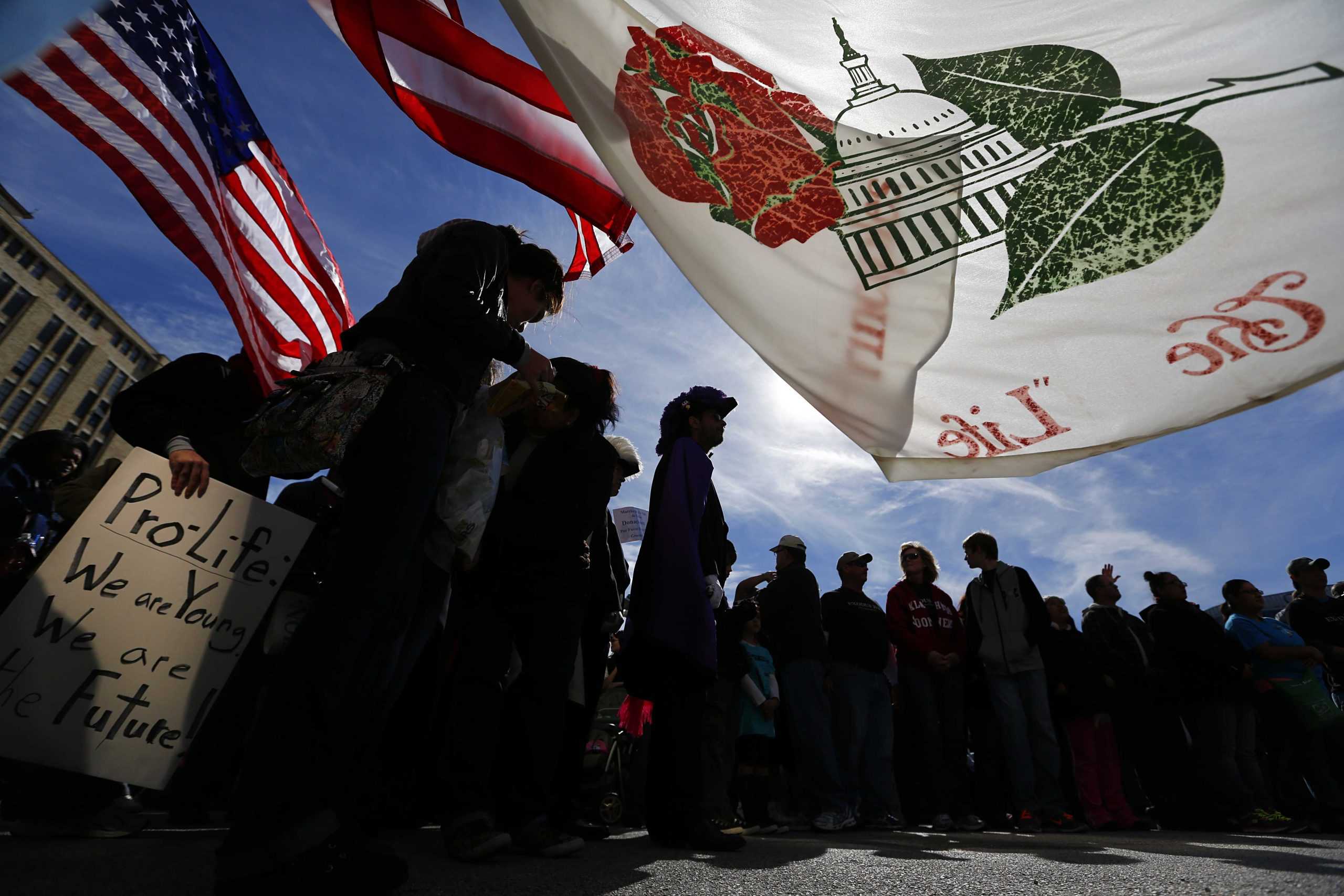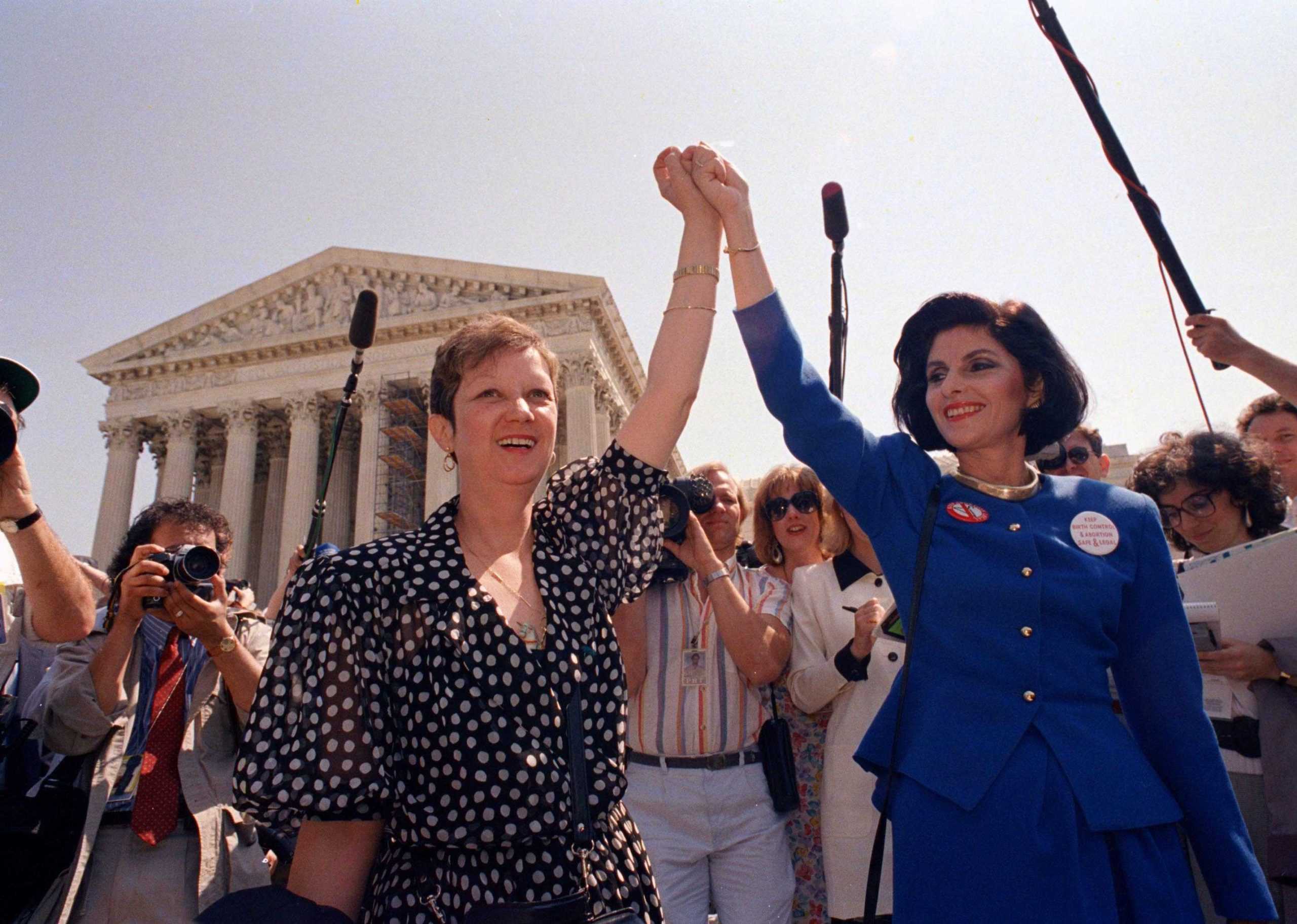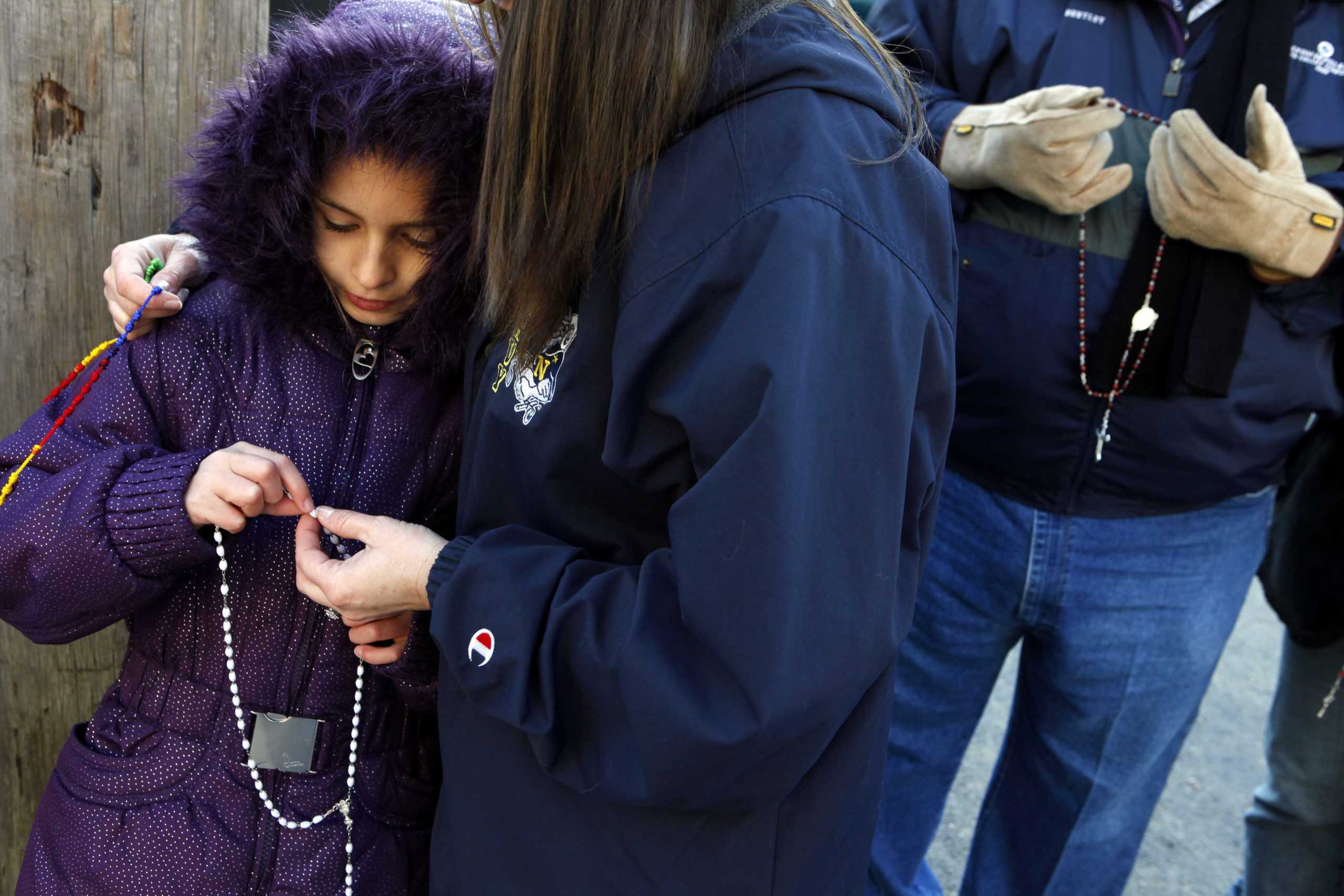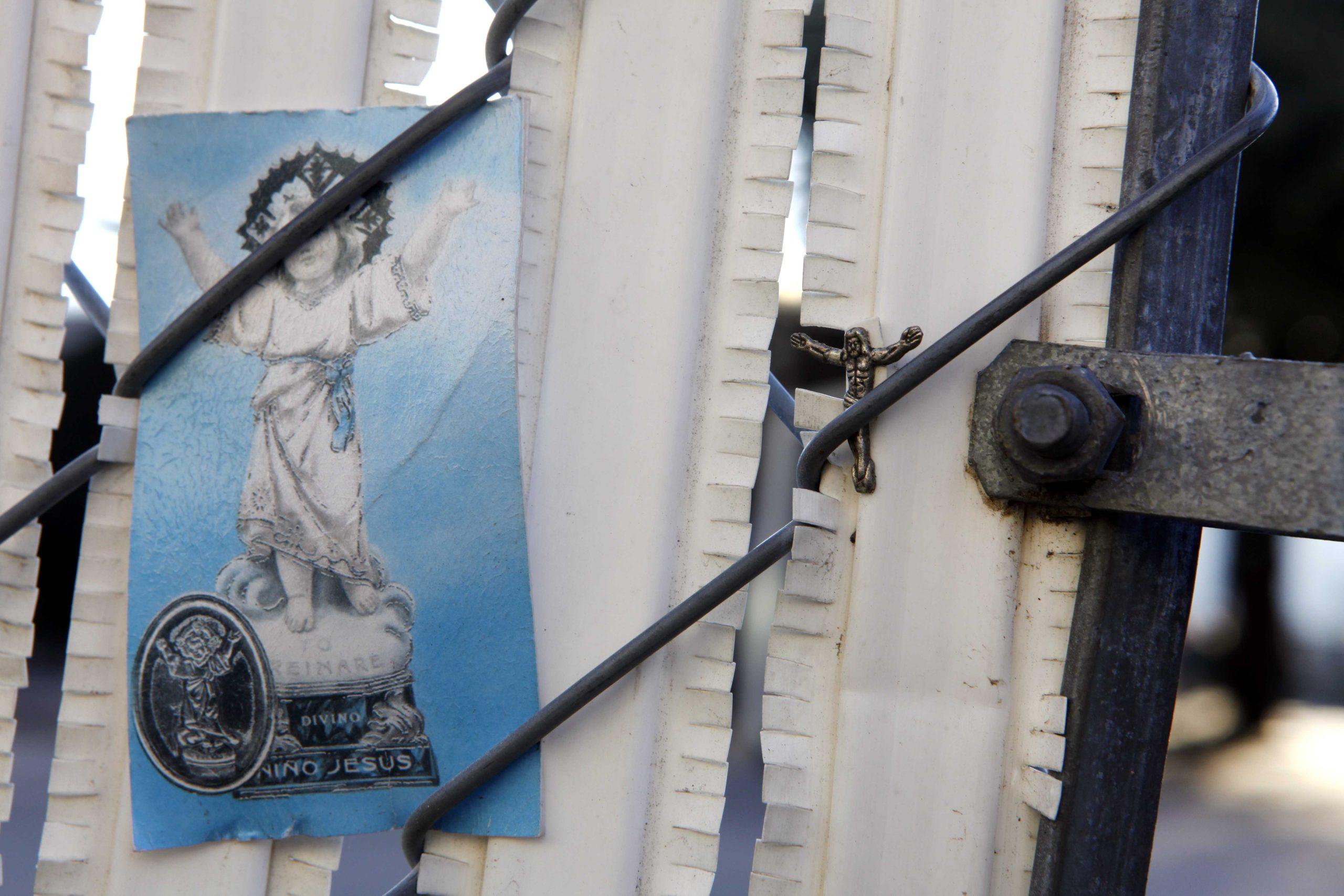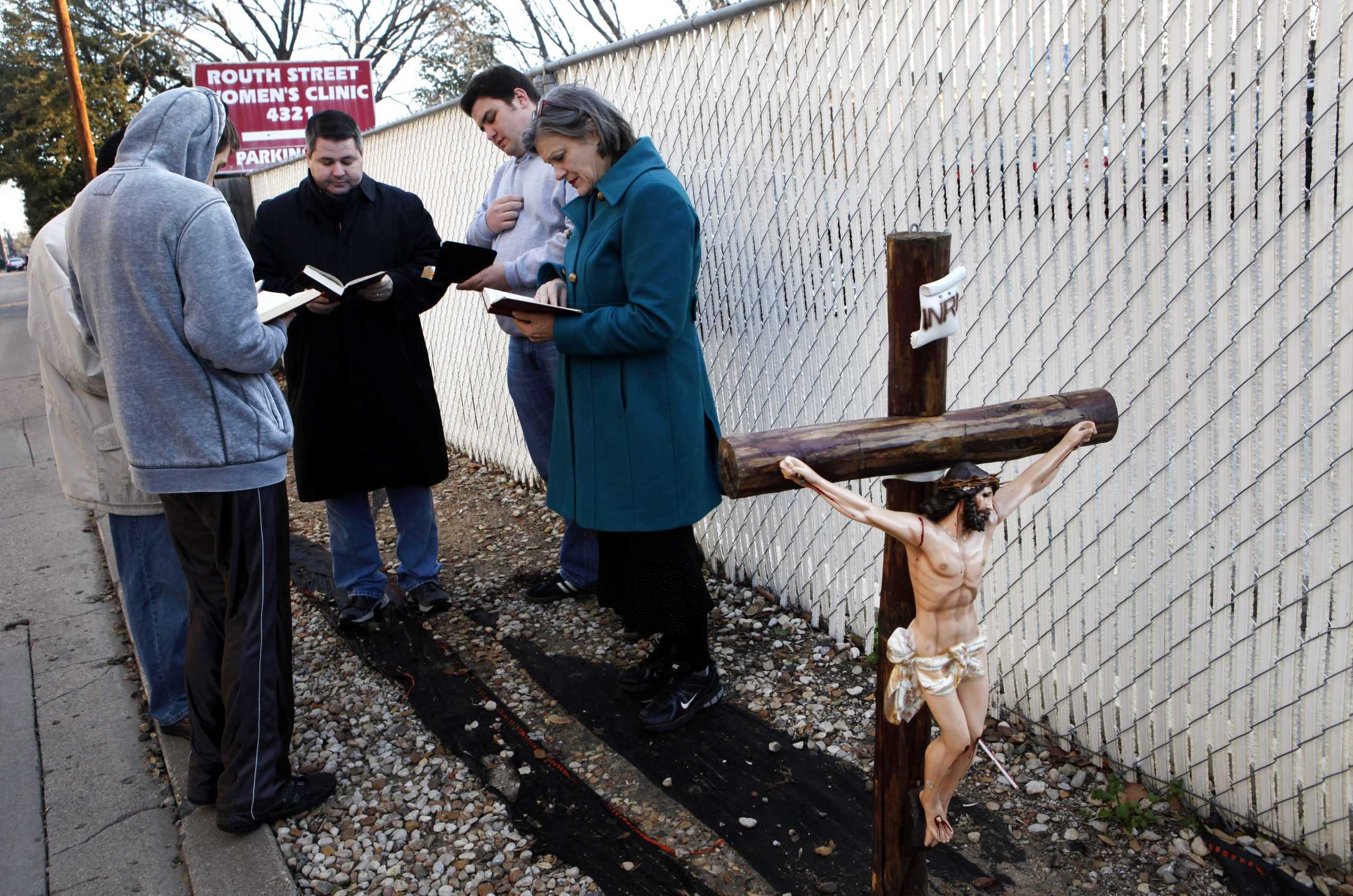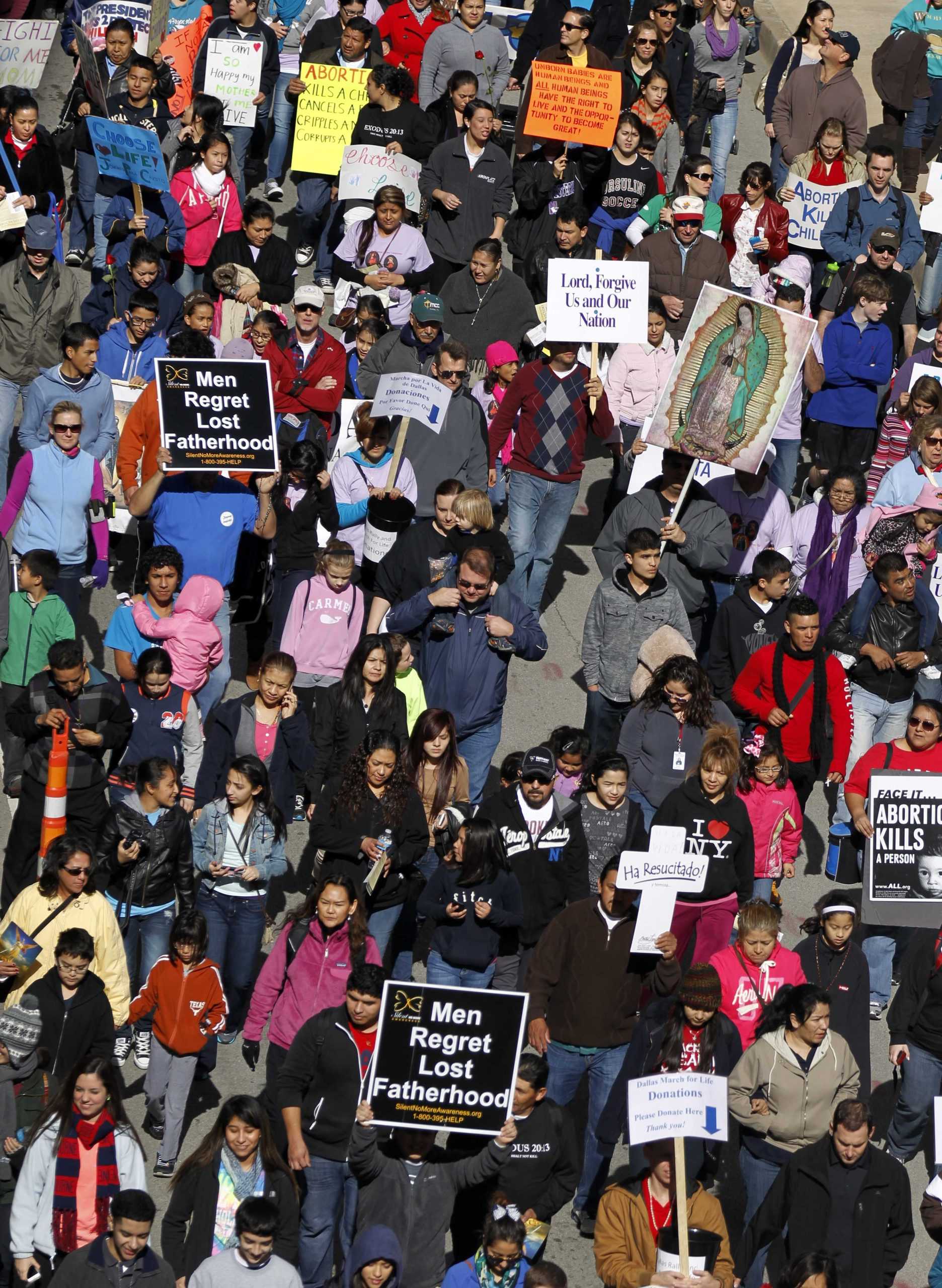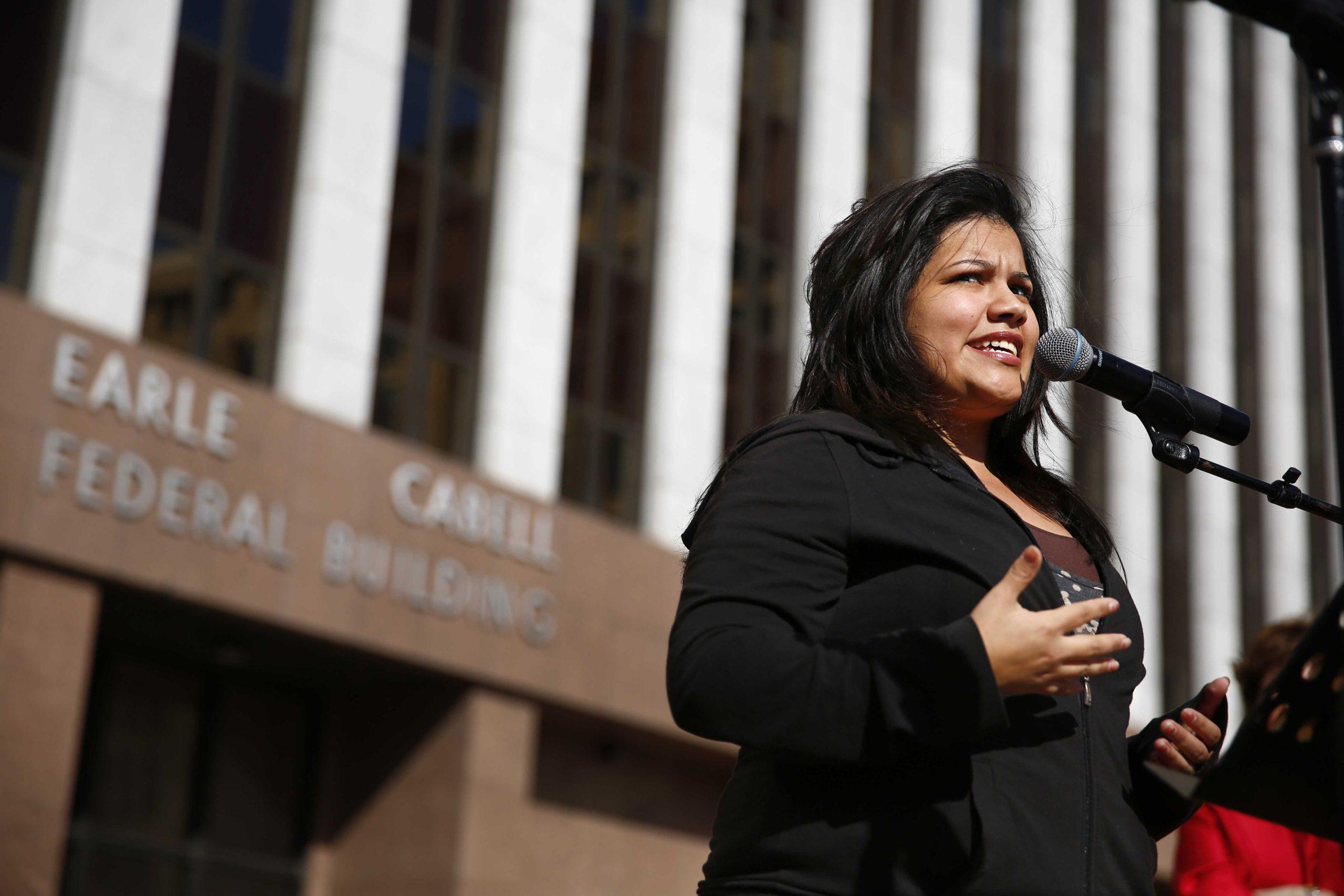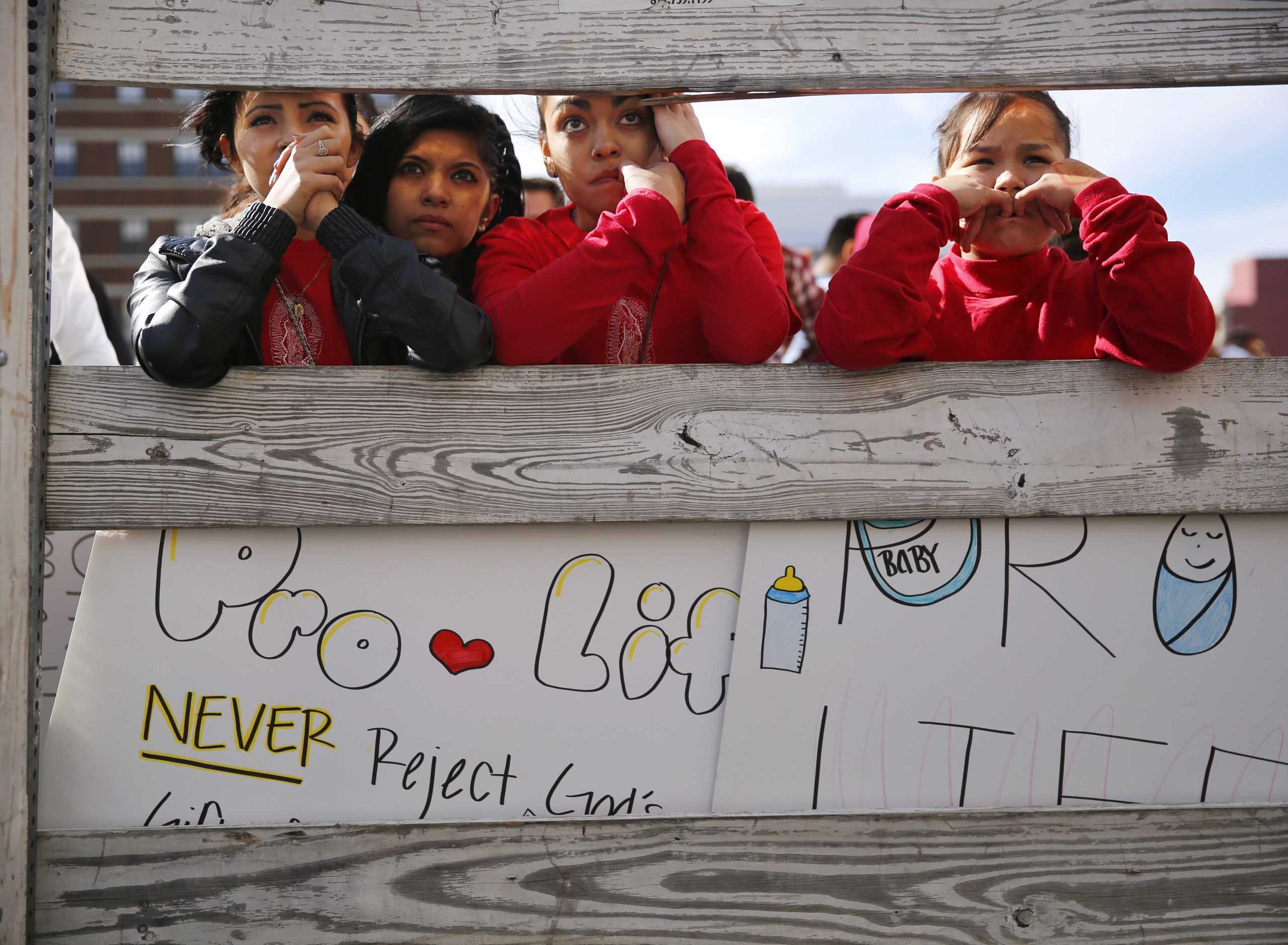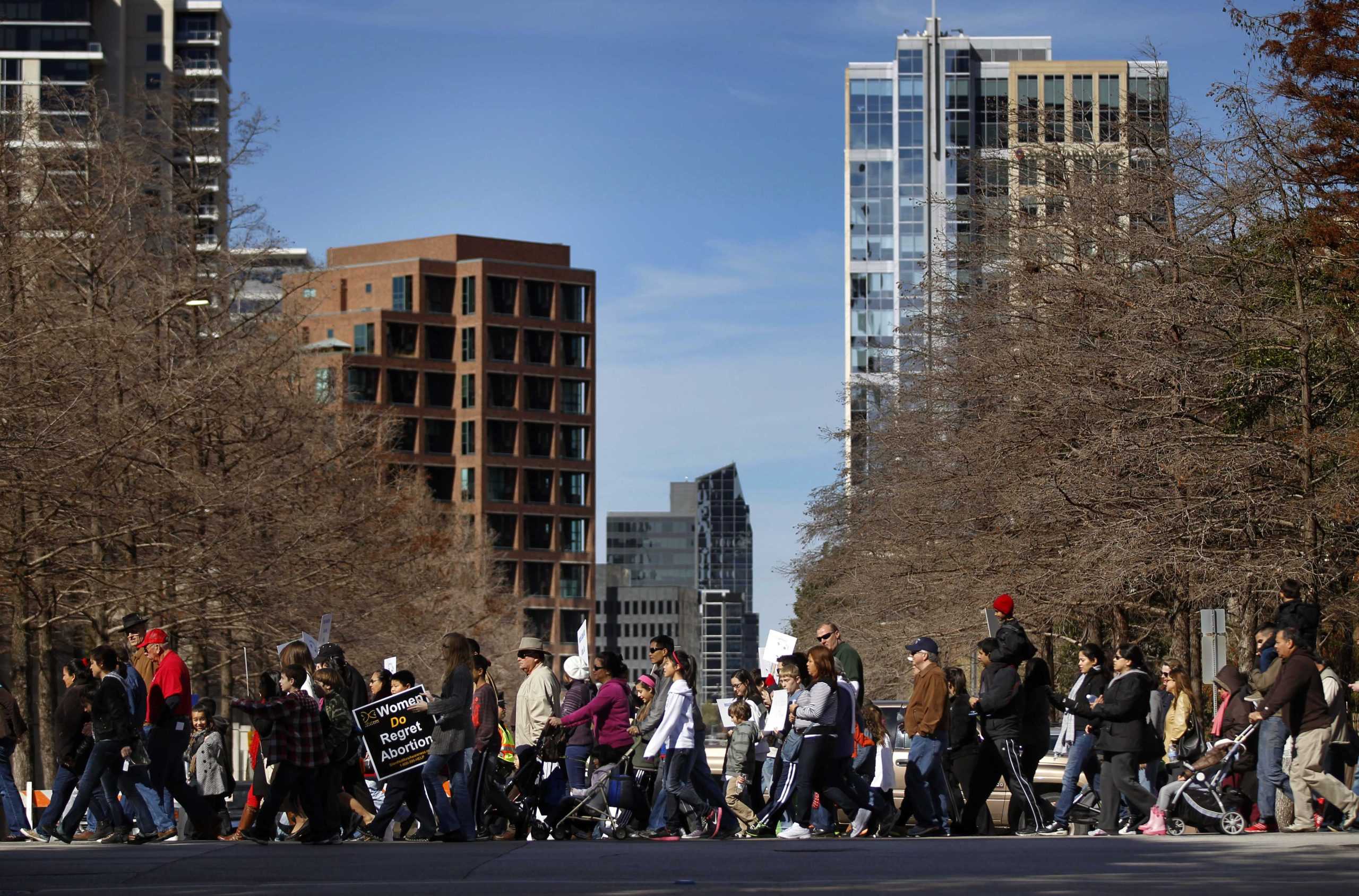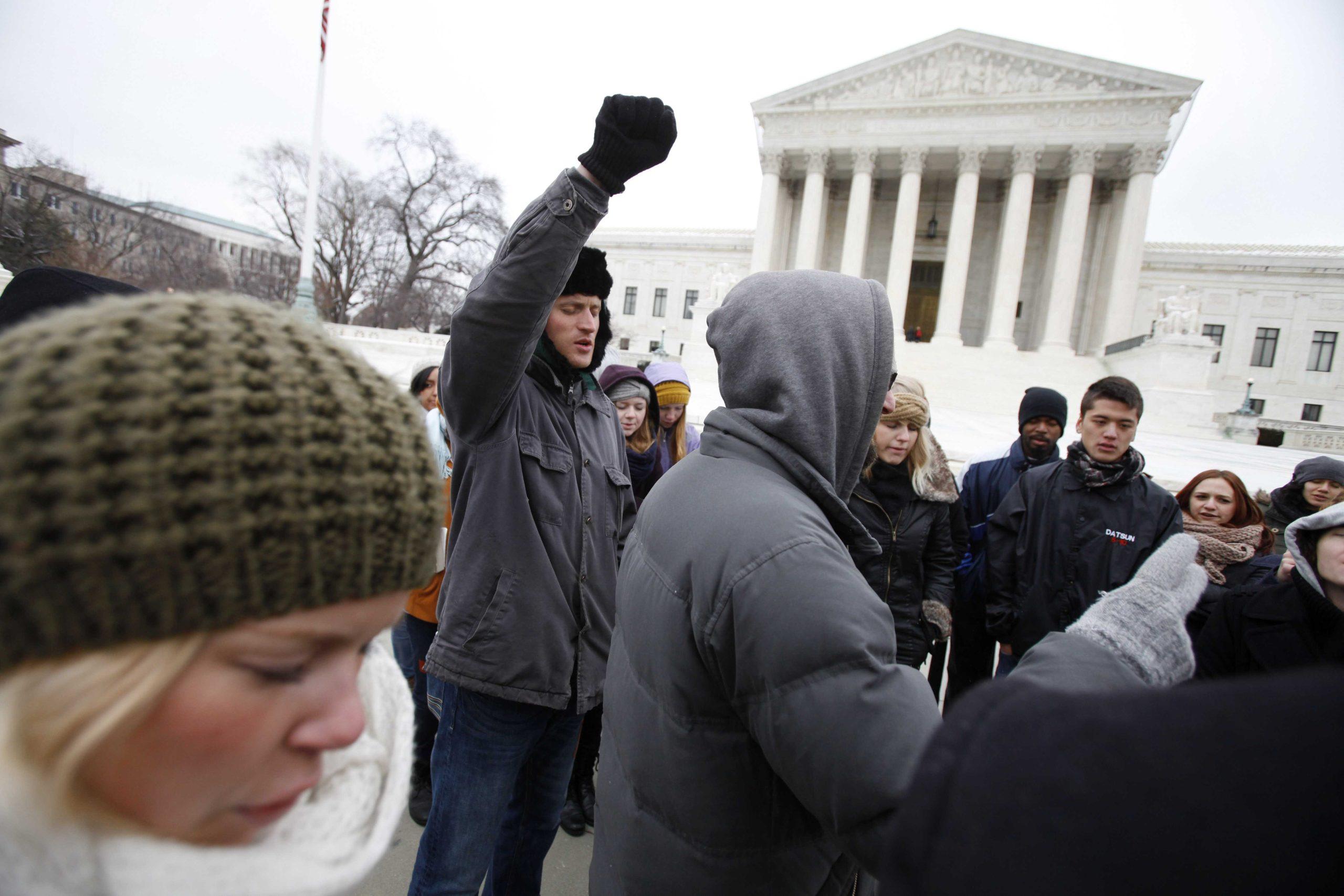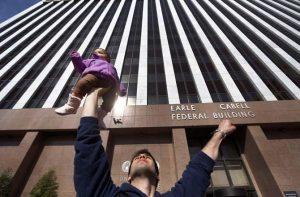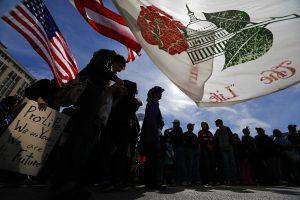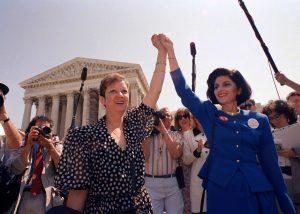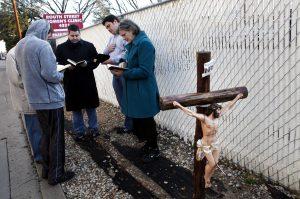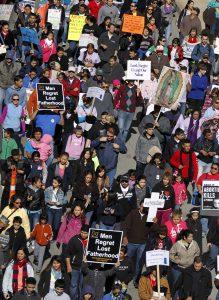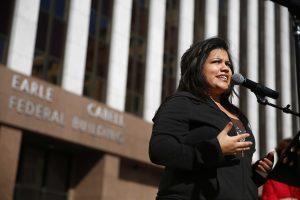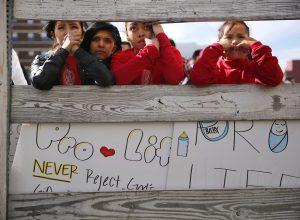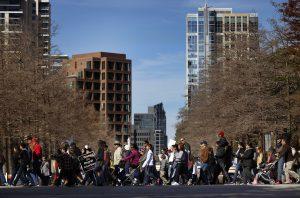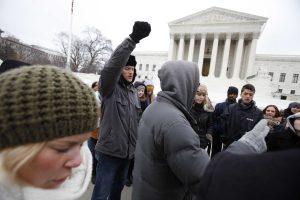The 40th anniversary of Roe v. Wade today gave rise to opposing emotions for student groups across the University’s campus. While some planned a trip to protest at the nation’s Capitol, others saw the day as a moment of achieved equality.
This year, several University students opposing abortion rights took their annual pilgrimage to Washington, D.C. to march from the National Mall to the Supreme Court.
Finance sophomore Shellie Pergola, women’s resource officer of Students for Life, has attended the March for Life multiple times.
“We want to make our voice heard for all the government with our presence and as a witness,” Pergola said.
Abortion rights advocates commemorate this date as a valuable gain, according to Neva Butkus, political science senior.
She said the court case has greater implications on how society views women.
“It’s a reminder for me and women everywhere, that we are equals and we should be treated as equals, not based upon your sex,” Butkus said.
Mass communication freshman and Students for Life member David Scotton’s life was saved from abortion and is currently working with Louisiana Right to Life to produce a documentary telling his story and meeting his birth parents for the first time.
“My birth mother was in the clinic and pro-lifers convinced her to save me,” Scotton said.
He has also made the trek to Washington and said he was inspired by the number of youth in attendance.
“It’s reassuring to see this generation so confident working together to end abortion. At some point, you start to doubt yourself, and you go to the march and you see all these people. It builds your confidence, and it’s a really great feeling,” Scotton said.
The march is not only a call to lawmakers for more anti-abortion legislation, but also a tribute to the 55 million lives lost to abortion, Pergola said.
“It’s a time when you remember the lives lost — 55 million since Roe v. Wade. That is the content, focus, reminder and passion to what we do,” Scotton said.
Jeanne Monahan, president of the March for Life Education and Defense Fund, wrote in a news release, “The March for Life is a demonstration of unity that we need to continue the fight to win over the hearts and minds of all Americans.”
Pergola said she is looking forward to the aftermath of the march.
“I want to see if our government hears our voice — to know what our senators and representatives are doing to truly represent our cause,” Pergola said.
The cause is particularly represented in Louisiana.
Louisiana is the most pro-life state in the country, according to the report “Defending Life: A State-by-State Legal Guide to Abortion, Bioethics and the End of Life” by Americans United for Life.
Even though Roe v. Wade has not been overturned, Pergola and Scotton both said there have been some gains in pro-life legislation, such as the Heartbeat Bill and an abortion ban after 20 weeks.
“I know it’s going to take a long time. And some may say it’s minimal, but it’s some gain. With these minimal gains, we will end abortion,” Scotton said.
Elaine Maccio, associate professor of social work and women’s and gender studies, said in an email the anniversary is about reflection and progress.
“This is about reminding us of where we’ve been, how far we’ve come and why we don’t want to go back,” Maccio said.
Maccio called any potential interference in the physician-patient relationship “nothing more than an attempt at control.”
The landmark court case has not only opened several doors for women, but has withstood both liberal and conservative eras, Butkus said.
“Any attempt to interfere in the physician-patient relationship is nothing more than attempt at control, plain and simple,” Maccio said.
Butkus said she hopes this anniversary convinces people that the Supreme Court decision is permanent and neither the government nor other people should be able to dictate an individual’s personal choice.
“It’s a reminder for me and women everywhere. That we are equals and we should be treated as equals not based upon your sex.”
-
Anti-abortion supporter Chris Blackwell of Richardson, Texas says, “Everyone is holding a sign, I’m holding up a baby,” referring to his 8-month-old daughter, Felicity, during the Rally for Life outside the Earle Cabell Federal Courthouse, site of the landmark Roe v Wade lawsuit filing, in downtown Dallas, Saturday, Jan. 19, 2013. The rally marks the 40th anniversary of Roe v. Wade, the Supreme Court decision that legalized abortion. Between 8,000-10,000 anti-abortion supporters gathered for the March for Life from the Cathedral Guadalupe to the Earle Cabell Federal Courthouse. (AP Photo/The Dallas Morning News, Tom Fox)
'
-
Anti-abortion supporters gather for the Rally for Life at the Earle Cabell Federal Courthouse, site of the landmark Roe v Wade lawsuit filing over 40 years ago, in downtown Dallas, Saturday, Jan. 19, 2013. The anti-abortion rally marks the 40th anniversary of Roe v. Wade, the Supreme Court decision that legalized abortion. Between 8,000-10,000 anti-abortion supporters gathered for the March for Life from the Cathedral Guadalupe. (AP Photo/The Dallas Morning News, Tom Fox)
'
-
Thousands of anti-abortion supporters gathered on Ross Ave. in downtown Dallas, Saturday, Jan. 19, 2013 for the March for Life following a service at the Cathedral Guadalupe. The anti-abortion rally marks the 40th anniversary of Roe v. Wade, the Supreme Court decision that legalized abortion. Between 8,000-10,000 anti-abortion supporters gathered for the March for Life from the Cathedral Guadalupe to the Earle Cabell Federal Courthouse, site of the landmark Roe v Wade lawsuit filing over 40 years ago in Dallas. (AP Photo/The Dallas Morning News, Tom Fox)
'
-
A anti-abortion supporter flies a flag along the March for Life route in downtown Dallas, Saturday, Jan. 19, 2013 to mark the 40th anniversary of Roe v. Wade, the Supreme Court decision that legalized abortion. Between 8,000-10,000 anti-abortion supporters gathered for the March for Life from the Cathedral Guadalupe to the Earle Cabell Federal Courthouse, site of the landmark Roe v Wade lawsuit filing over 40 years ago in Dallas. (AP Photo/The Dallas Morning News, Tom Fox)
'
-
A flag that flew at a Washington DC anti-abortion rally waves in the wind as thousands gathered for the Rally for Life outside the Earle Cabell Federal Courthouse, site of the landmark Roe v Wade lawsuit filing over 40 years ago, in downtown Dallas, Saturday, Jan. 19, 2013. The anti-abortion rally marks the 40th anniversary of Roe v. Wade, the Supreme Court decision that legalized abortion. Between 8,000-10,000 anti-abortion supporters gathered for the March for Life from the Cathedral Guadalupe to the Earle Cabell Federal Courthouse. (AP Photo/The Dallas Morning News, Tom Fox)
'
-
FILE – In this Wednesday, April 26, 1989 file photo, Norma McCorvey, Jane Roe in the 1973 court case, left, and her attorney Gloria Allred hold hands as they leave the Supreme Court building in Washington after sitting in while the court listened to arguments in a Missouri abortion case. Months later, the high court ultimately upheld the Missouri law in the case, Webster v. Reproductive Health Service, making it illegal to use public officials or facilities for abortions. (AP Photo/J. Scott Applewhite, File)
'
-
Jessica Rorke prays the rosary with her daughter Maddie Rorke, 9, at the entrance of the Routh Street Women’s Clinic during the Roe Memorial Rosary/Jericho Walk to mark the 40th anniversary of the 1973 Roe v. Wade decision that legalized abortion, in Dallas on Saturday, Jan. 19, 2013. (Lara Solt/The Dallas Morning News)
'
-
A photo and a milagro are attached to the fence at the entrance of the Routh Street Women’s Clinic during the Roe Memorial Rosary/Jericho Walk to mark the 40th anniversary of the 1973 Roe v. Wade decision that legalized abortion, in Dallas on Saturday, Jan. 19, 2013. (AP Photo/The Dallas Morning News, Lara Solt)
'
-
Rev. Chris Woodall of the Church of the Holy Communion, center, leads a prayer with Michael Templin, second from right, Susan Sutton, right, and others during the Roe Memorial Rosary/Jericho Walk around the Routh Street Women’s Clinic to mark the 40th anniversary of the 1973 Roe v. Wade decision that legalized abortion, in Dallas on Saturday, Jan. 19, 2013. (AP Photo/The Dallas Morning News, Lara Solt)
'
-
Anti-abortion supporters parade down St. Paul St. during the March for Life in downtown Dallas, Saturday, Jan. 19, 2013 marking the 40th anniversary of Roe v. Wade, the Supreme Court decision that legalized abortion. Between 8,000-10,000 anti-abortion supporters gathered for the March for Life from the Cathedral Guadalupe to the Earle Cabell Federal Courthouse, site of the landmark Roe v Wade lawsuit filing in Dallas. (AP Photo/The Dallas Morning News, Tom Fox)
'
-
Abortion survivor Angela Martinez Balderaz shares her story with the thousands gathered for the Rally for Life outside the Earle Cabell Federal Courthouse, site of the landmark Roe v Wade lawsuit filing over 40 years ago, in downtown Dallas, Saturday, Jan. 19, 2013. The anti-abortion rally marks the 40th anniversary of Roe v. Wade, the Supreme Court decision that legalized abortion. Between 8,000-10,000 anti-abortion supporters gathered for the March for Life from the Cathedral Guadalupe to the Earle Cabell Federal Courthouse. (AP Photo/The Dallas Morning News, Tom Fox)
'
-
Anti-abortion supporters from St. Cecilia Catholic Church in Oak Cliff, from left, Michelle Pina, 16, Joanna Tellez, 17, Daisy Aguire, 17, and Fatima Pina, 12, gather to hear speakers at the Rally for Life outside the Earle Cabell Federal Courthouse, site of the landmark Roe v Wade lawsuit filing 40 years ago, in downtown Dallas, Saturday, Jan. 19, 2013. (AP Photo/The Dallas Morning News, Tom Fox)
'
-
Anti-abortion supporters parade down Ross Ave. during the March for Life to mark the 40th anniversary of Roe v. Wade, the Supreme Court decision that legalized abortion. Between 8,000-10,000 anti-abortion supporters gathered for the March for Life from the Cathedral Guadalupe to the Earle Cabell Federal Courthouse, site of the landmark Roe v Wade lawsuit filing over 40 years ago, in downtown Dallas, Saturday, Jan. 19, 2013. (AP Photo/The Dallas Morning News, Tom Fox)
'
-
FILE – In this Sunday, Jan. 22, 2012 file photo, people with the group “Bound 4 Life” pray for an end to abortions outside of the U.S. Supreme Court in Washington on the 39th anniversary of the court’s landmark Roe vs. Wade decision which legalized abortion. (AP Photo/Jacquelyn Martin, File)
'



